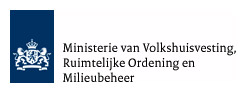The Problems of the Prislopians
Prislop is a small Roma village in the heart of Romania. The three hundred inhabitants are living in poor circumstances...
14.01.2008 |Saar Sleegers

In the following article, four theme’s will be highlighted to give an impression of the problems the villagers deal with and of the ways WECF tries to support the villagers.

Many inhabitants of Prislop do not have a solid roof that actually stops the rain from coming in. WECF plans to help the villagers to learn how to build a lasting roof.Hygiene in Prislop is poor. Sometimes very poor. By improving the water supply to the village and by organizing a hygiene course, WECF tries to improve the village hygiene.
discrimination
The inhabitants of Prislop are discriminated against by the local government because of their Roma ethnicity. WECF stimulates the villagers to be aware of and to stand up for their rights. The unemployment rate in Prislop is very high. WECF is planning to conduct projects to stimulate income generating activities.
An indoor rain shower
Alina is a woman of twenty-seven years old who lives in Prislop. Her house consists of one room which measures about twenty square meters. In this room Alina lives with her husband and her three children – two girls and a boy. The room serves as a living room, bedroom and kitchen - all in one. At daytime the two sofa beds in the room are used as couch, at nighttime the sofa beds are folded out and used as bed. Alina sleeps with one of the girls in the one bed, her husband with the other girl in the other bed. The little baby boy sleeps in his carriage.

One day it starts to storm above Prislop. Rain starts pouring down and in a few minutes the streets have become muddy and little streams flow downhill. Alina’s daughters, Adina and Paula, seek shelter in the house. After a few minutes the roof of the house starts to leak.
It starts with a few drops, but soon the rain is pouring down over the sofa beds and the wardrobe in the corner. Adina and Paula enjoy this indoor shower and run around to catch raindrops in their cupped hands. Alina and her husband Petru, on the other hand, are worried and check the covers of the electricity wires leading to the light bulb hanging from the middle of the ceiling.
Alina’s roof is in a very poor state and urgently needs to be fixed. The tar paper, with which the roof is covered, is punctured with holes. Alina and Petru lack the money, though, to invest in new materials for fixing the roof. Therefore, they just try to cover the wardrobe and the sofa beds when it starts raining and wait for the storm to blow over.
tar paper
All the houses in Prislop have been built by the inhabitants themselves. Most of the houses have been made of wooden beams that are covered with a layer of clay. Some of them have a foundation of stones; others are just erected on the clay ground.
Many of the roofs, like Alinas’, are covered with tar paper. Others are covered with tiles, metal plates or small pieces of wood. Judging on the roofs of the houses, one can quite precisely make out how well-of the inhabitants are. People who can afford it, cover their roofs with metal plates or tiles. Others, who are poorer, fix their roofs with plastic or do not fix them at all. Indoor rain showers are a common phenomenon in Prislop. To heat their houses, most villagers use metal stoves. Margriet Samwel from WECF is especially worried about the way people use these stoves. ‘People use wet wood to heat their stoves because it burns longer than dry wood. The burning of wet wood creates a lot of smoke, though, and this smoke fills the houses because the stoves are often old and full of holes and often lack chimneys. This causes children to suffer from bronchitis and other respiratory problems.’
The lack of chimneys indirectly influences the bad situation of the roofs. Instead of having a chimney, the villagers make ventilation holes in the walls to let the smoke out. When it is storming, wind blows through these holes and this can cause the roofing to fly away.
The local WECF partners are planning to conduct a project to improve the state of the roofs and the chimneys of the houses. They want to invite experts to the village to teach the villagers how to build a solid and lasting roof.
To make sure that the project is only joined by villagers who are really motivated and willing to learn, the project partners want individual households to pay for half of the materials needed for the reparations and construction costs.
Waiting for water
Although the rain causes problems for the inhabitants of Prislop, it also has a positive outcome: when it is raining, there is sufficient water in the village. The water supply in the village is dependent on the amount of rain: rain water is collected in reservoirs in the hills and is fed to the village via pipes.
The village has one public tap. Here, all the villagers get their water. In times of draught, however, the supply of water is insufficient. Then it can take over half an hour to fill one bucket with water. Women and children stand in line at the tap for hours to get their share.
Those who have a wagon, drive down to the next village to get water from the public wells over there. Others, who are not that fortunate, prefer to stay in the village and wait at the tap, instead of walking the three kilometers to this village in the blazing heat.
The unreliable supply of water is one of the main problems that the inhabitants of Prislop are coping with. It is a very time consuming daily activity to get enough water. However, the scarcity of water does not only result in long waiting lines near the tap. More importantly, it has negative effects on the personal hygiene. Most villagers seldom wash themselves or their clothes. They do not brush their teeth and only occasionally wash their hands. Children and adults have rotten teeth and the WECF project partners are afraid that many villagers suffer from bacterial diseases and worms.
hygiene course
Two projects are designed to improve the health and hygiene situation in the village. First, they have started to improve the water supply to the village by repairing the water pipes and the water reservoirs. Second, they have started a hygiene course for women to raise the awareness on health and hygiene and to improve people’s personal hygiene standards. Project partner Anca Dancanet:
‘My aims are to explain a few basic rules about hygiene and to ask them [the villagers] to apply the things I teach them in their own households. I want to teach them about some simple activities like how to clean the house and how to take the dust off. I also want them to realize that it is important to wash the kids and that it is not healthy to be dirty all the time. It is important that children wash their bottoms and their genital organs at least once a day so that they do not get infected. They also should know that they shouldn’t let their kids walk around with a dirty diaper.’
In order to motivate the women to come, the project partners combine the hygiene course with cooking classes in which the women learn how to cook cheap but healthy dishes.
‘In rainy weather we cannot sleep at night’
Florin lives in a house close to the ridge of the hillside that defines the border of Prislop. One day, when WECF project partner Anca Dancanet is making a tour through the village, Florin invites her in. He wants to show her something.
Florin leads Dancanet to the back of his house and shows her the ridge of the hillside. Here, Florin’s problem is immediately visible: big chunks of the soil, where Florins’ house is built on, have been broken of the hillside. The house looks like it will slide down the hill at any moment. ‘The soil eroded because of the heavy rains’, Florin explains. ‘After each storm a bit more soil is flushed away. We cannot do anything about it.’ Florin points out the cracks in the clay ground around his house. ‘It will only take a few storms and these parts will be gone too.’
Florin is worried that, because of the erosion, his house will collapse and fall down the hillside. ‘With rainy weather’, he tells, ‘we cannot sleep at night.’
Anca Dancanet proposes to Florin that he should apply to the authorities in the neighboring town of Rinari for help. According to Dancanet the best way to do this, is to send them a petition which is signed by all the people who live near the hillside and who are facing the same problems as Florin. In this way, they can try to convince the local government to support them.
Florin says he will do what Dancanet proposes, but he is far from convinced that this petition will make a difference. As most people in Prislop, Florin has no trust in the government. He has learned that the authorities in R__inari do not care about the inhabitants of Prislop. He is afraid that the help from the authorities will never come.
The inhabitants of Prislop do not own the ground on which they live. It formally belongs to the community property of the nearby village of Rinari. The area is officially known to be a pasture where shepherds let the cattle out to graze. The villagers do not have the official permission to live there and do not have any rights to the land.
Although the villagers formally do not own the plots they live on, the R__inari authorities are feigning a blind eye on the situation. Villagers are permitted to stay where they are but at the same time the local authorities do not pay any attention to the villagers’ basic needs.
On maps that were made in the beginning of the 20th century, Prislop is characterized as the Tsigani – the ‘Gypsy’ quarter – of Rinari. Although the settlement is not called Tsigani anymore these days, Prislop is still known as a ‘Gypsy village’. This makes the village infamous in most of the surrounding villages and towns.
In Romanian society prejudices against the Roma – to use the more politically correct word for ‘Gypsies’ – are very deeply rooted. All Roma are said to be too lazy to work. They are thought of as beggars, thieves and murderers. The majority of the non-Roma people do not dare to go into a Gypsy neighborhood. Prislop is no different: people prefer to ignore the existence of the village and the problems of its inhabitants.
The local government is indifferent towards the living conditions in Prislop and employees from Romanian firms often refuse to come to the village to provide their services or to deliver goods.
Many of the inhabitants of Prislop itself do not agree on the fact that they are labeled Roma in the outside world, some villagers are even offended when people call them Roma. They regard themselves as Romanians and do not want to be characterized as members of this minority group.
Unfortunately it is impossible for the WECF project partners to bring about major changes in the way the governmental structures and the discriminatory attitudes against the Roma. What they can do, however, is to make the inhabitants of Prislop aware of their rights and their obligations and to facilitate them to use the possibilities they have to change their situation.
Anca Dancanet, for example, approaches parents of handicapped children and helps them to get the state support they are entitled to. She also negotiates with the mayor of R__inari to stimulate him to improve the living conditions in the village.
Picking berries and making brooms
The unemployment rate in Prislop is high, almost 100 percent. That is to say: almost no people in Prislop have a regular job. This does not mean that they do not work. On the contrary, in summer and fall villagers go into the mountains to pick bilberries and mushrooms, which they sell on the market in the nearby city of Sibiu. In the winter and in springtime they make baskets and brooms which they sell from door to door.
Besides this, villagers have temporary labor on farms and work on construction sites. Some villagers, the ones who own the more comfortable houses, earn their money in Italy by working on the black market, steeling or begging.
Before the revolution in 1989, more inhabitants of Prislop had a regular job: they were employed in the textile factories in the neighboring cities of Cisnadie and Sibiu. These factories went bankrupt in the early nineties and the villagers lost their jobs. Ilie, a man who now owns the one and only shop in Prislop, expresses his longing for ‘the good old days’: ‘In Ceaucescu’s times things were better for us. We had a steady income. Life was easier’
After the fall of Ceaucescu’s regime, the work opportunities of the villagers were not only affected by the bankruptcy of the state factories, but also by the exodus of the Sach Germans who formed the major part of the population of the nearby village of Cisnadioara. Most of the Sach Germans, whose ancestors had been living in the area since the 12th century, were rich farmers.
They generally had a better relationship with the Roma population in Prislop than the ethnic Romanians from the surrounding villages. Villagers from Prislop came to Cisnadioara to trade their handicrafts for food and clothes and the Sach farmers offered them jobs on their farms.
In the early nineties, however, the majority the Sach Germans moved to Germany in search for a better life. The Romanians, who moved in to the houses were much more hesitant in their dealings with Roma. The inhabitants of Prislop had lost yet another source of income.
Now, the unemployment in the village is still high. Many villagers are uneducated and as they are regarded as Roma, they are discriminated against on the labor market. Since it is so common to live from temporary jobs, most young people do not feel inclined to even look for a regular job. In addition to these factors, many people would also not have the time for a regular job.
As there is no daycare system in Prislop, parents have to stay at home to look after the children and to do daily activities like getting water from the tap, washing clothes and going to the market in other villages. Due to the poor infrastructure, these activities are very time consuming.
According to the WECF project partners, many problems of the villagers would be solved if they would receive a steady monthly income. Therefore, they try to stimulate income generating activities in the village.
The project partners are thinking of building a sun dryer in the village in which the villagers can dry the berries and the mushrooms they pick in the mountains. And they are also considering whether it is possible to start the production of jam. At this moment, they are researching the practical possibilities to realize and develop these ideas.
Related News
Having the Agenda 2030 in sight - Water and Sanitation Conference in Romania
Water and Sanitation Safety Planning in rural areas of Romania and Macedonia
28.01.2017
Women 2030 Regional Workshop in Eastern Europe
Participants from Macedonia, Albania, Bosnia Herzegovian, Moldova and Serbia introduced to gender-responsive implementation of the SDGs
22.01.2017
Taking responsibility for safe water and adequate sanitation in rural Romania
In the frame of the annual professional water and wastewater conference EcoImpuls in Timisoara, Romania, Aquademica organized a workshop for mayors in the region. The aim was to raise awareness about the responsibilities of the mayors to safely manage water and sanitation in their rural areas.
27.10.2016
“We cannot have safe water without proper waste and wastewater management”
Water and Sanitation Safety Planning in rural Romania - Closing Conference on WECF Project
04.05.2015
WECF presents 10 steps for developing Water and Sanitation Safety Plans
A two day training for teachers and local authorities enabling communities in Timisoara county, Romania, to develop their own WSSPs
28.05.2014 | WECF







































